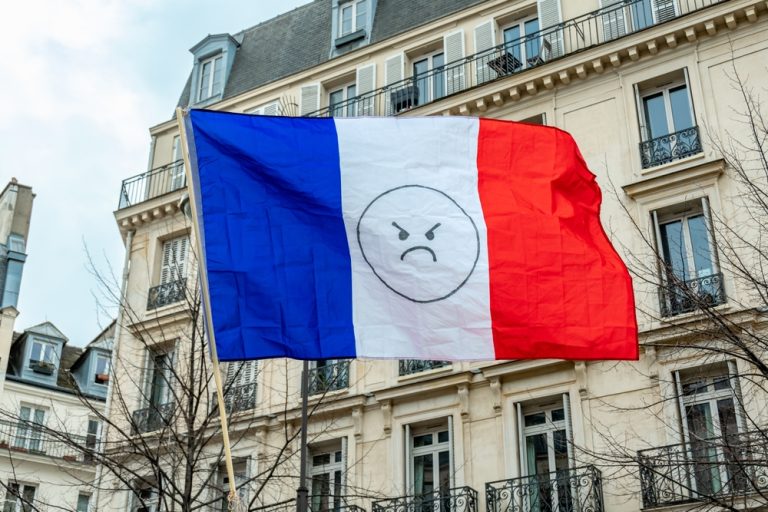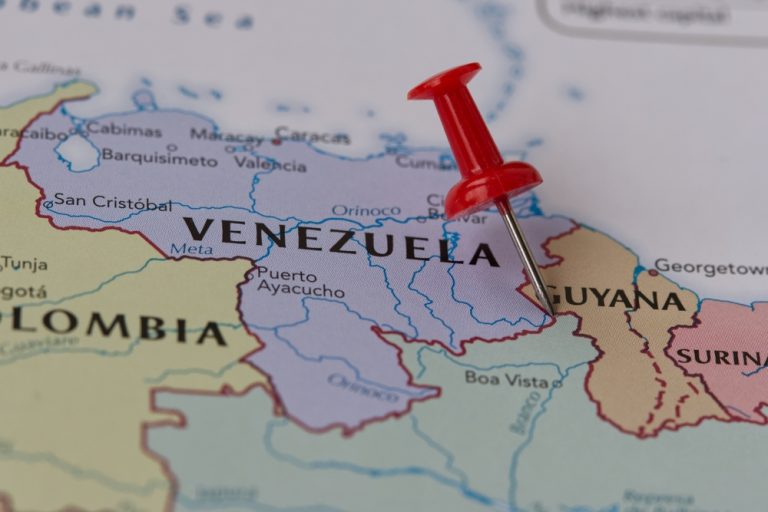
Iran has become another point of clash between Democrats and Republicans in the U.S.
Iran has been one of the main and almost existential adversaries of the United States for decades, and the turn in its direction, which began under Barack Obama and continued with renewed vigor in the era of foreign policy failures of Joe Biden’s presidency, could not but cause a local political crisis. In September, Congress entered another clash with the White House, and while there are always plenty of reasons for it, this time it was Iran. Biden’s team announced a prisoner swap that offered to exchange five Iranian-Americans for five Iranians in a U.S. prison. In addition, Tehran also received 6 billion in frozen assets from South Korea transferred to accounts in Qatar. Republicans immediately criticized Biden, accusing him of pandering to Iran. After all, the deal was made right after September 11, and anti-Iran radicals in Washington accuse Tehran of sheltering al-Qaida leaders. Biden, on the other hand, is blamed for making concessions to al-Qaida on the eve of the tragic events of 2001.
Within the framework of the deal, Iran formally made concessions as well, and agreed not to exceed the threshold of 60% uranium enrichment to build a nuclear bomb. But the Iranians are prone not to keep their promises and to cancel earlier deals, and with the emergence of hypersonic weapons, which can be transferred to it by Russia or China, even compliance with the agreements is no longer critical for Iran’s military program. It should be understood that the White House has been pushing hard to curtail Iran’s military cooperation with Russia, at least, but has received a categorical refusal. Biden’s opponents afterward called such a deal a complete victory for Iran, and the White House itself a sponsor of terrorism and anti-American forces. Republican congressmen are now defiantly embracing the MAHSA Act, which is named after the dead Iranian girl last year who sparked a wave of protests against Khamenei’s regime. He imposes new sanctions on Tehran, and is an attempt to restrict Iranian drone and missile exports. It threatens to immediately undermine the terms of Biden’s shaky deal with Iran. Republican presidential candidates have also immediately stepped up to harshly criticize the current Iranian-American relationship, and Trump has confidently stated that Tehran secretly transferred some of the money it received to Biden in the form of a bribe. Complicating the situation is the fact that the split in Washington turns Biden into a “lame duck,” and any agreements with him are so temporary that they may not even last a couple of weeks.
But the current administration in the White House has no choice, having quarreled with the main U.S. allies in the Middle East, the monarchies of the Persian Gulf, and Biden goes with an outstretched hand to the former opponents. In this light, the White House requested Iran’s support in increasing oil exports, only to soften the sanctions regime in return. In essence, Iran exchanged five imprisoned Americans for the unblocking of assets in Iraq and South Korea and promised to reduce the pace of uranium enrichment. And the effect was not long in coming, with Iranian oil exports rising to a five-year high of 1.5 million barrels per day. But to the Americans’ chagrin, the beneficiary of this is primarily China. It has built up its strategic oil reserve to a record 950 million barrels, while Washington has emptied its oil reserves and is unable to replenish them because of infrastructure problems. This has already led to allegations of corruption against Biden because much of the oil sold from the U.S. reserves ended up in the ownership of Chinese corporations. Biden’s team urgently needs to keep the cost of gasoline in America below $4 a gallon before the election, so they have to grovel before the Iranians. However, the Israeli lobby in Washington has already turned on Biden for this, so it remains to be seen whether these diplomatic “inventions” will help Biden or just give Republicans a new excuse to accuse him of betraying U.S. interests for the sake of trying to get re-elected. At the same time, China is stepping up activity in the Middle East, negotiating with Iran and shifting Saudi Arabia and Iraq to trading oil in yuan. Mahmoud Abbas recently visited Beijing, and the Palestinians are urging China to engage in talks with Israel, whose Prime Minister Netanyahu will soon visit Beijing.

All this very quickly caused a new scandal in the United States, with radical patriots in Washington outraged by the secret talks between Biden’s team and Iran’s representatives in Oman. The talks attempted to broker a “mini-agreement” that was a soft version of the Iran nuclear deal. The Americans offered to lift some of the sanctions and return several billion dollars in frozen assets to Iran, and more recently, the U.S. allowed Iraq to pay Iran $2.8 billion of its debts for gas and electricity imports. In exchange, the White House demanded that Iran not enrich uranium to above 90% of the level needed for nuclear weapons, because Iran had already achieved 84% uranium enrichment and the old 60% requirement was no longer relevant. Anti-Iran lobbyists in Washington again called such a deal a complete victory for Tehran. After all, Iran had already succeeded in breaking out of regional isolation, and with China’s support it had restored diplomatic relations with Saudi Arabia. Trade has also been revitalized again, and the Iranian economy hopes to receive billions of dollars of investment from the Gulf monarchies, Russia and China. Plus Iran, unveiled the Fattah, or “Conqueror” hypersonic missile, capable of traveling at 15 times faster than sound. This has made the “nuclear issue” even less important to Iran, because hypersonics as a deterrent is quite sufficient. Against this background, the U.S. intelligence services are also confident that Iran has begun to receive modern nuclear weapons.
But Biden has to show tolerance because the U.S. is trying to normalize relations with Iran, seeking at the same time to weaken Iran-China and Russian-Iranian cooperation. The U.S. attempts have infuriated not only Israel, which lobbies for a forceful solution to the Iranian issue, but also Turkey. Thus, President Recep Erdogan said that Iran is the main obstacle to the opening of the Zangezur corridor, which should become a key link in the trade highway connecting China and Europe through Pakistan, Iran, Azerbaijan and Turkey. It is possible that Iran’s position is not only the result of Baku’s anti-Iranian sentiments, but also a certain signal to China, which has been cooperating too actively with Saudi Arabia lately. Despite some warming of relations, the fundamental contradictions between Iranians and Saudis have not been removed, and Tehran still supports Shiites in Iraq, Yemen and Saudi Arabia itself. Perhaps, in addition to the nuclear deal, the Americans are hoping to capitalize on Iranian concerns about the growing friendship between the Chinese and the Saudis. And the start of negotiations on the deal is also, in a sense, a signal to Beijing. The U.S. will act against China on various fronts, and the Middle East is one of the main ones. However, the U.S. will have to make every effort to weaken Iran-China cooperation, and a deal is clearly not enough. Moreover, it is not so easy to conclude it either, because it is unlikely that the Islamic Republic of Iran, which bases its entire policy on loyalty to its ideals, will agree to American proposals without serious concessions from the White House. The U.S. cannot make such concessions without worsening relations with its main ally, so the negotiations risk a deadlock very quickly. That is why with his mini-agreement, which looks very ambiguous, Biden is trying to seize the initiative from China and somehow prevent cooperation between Russia and Iran. However, these belated decisions are more likely to result only in Biden himself now being attacked by opponents inside the U.S. for making concessions to America’s opponents, while his foreign policy objectives will not be accomplished.

